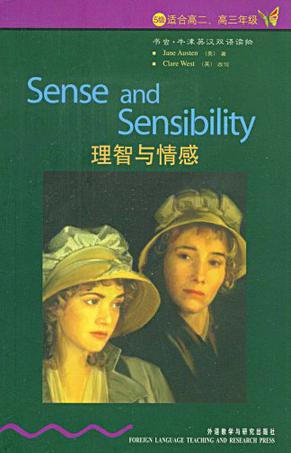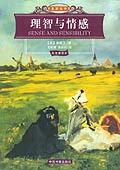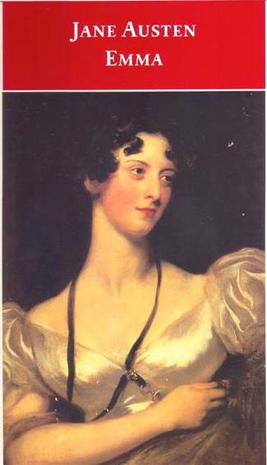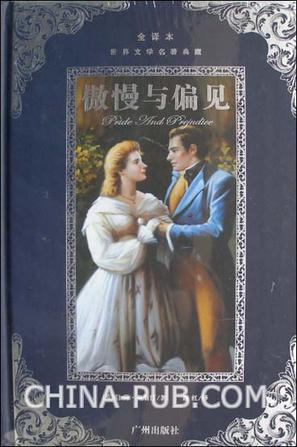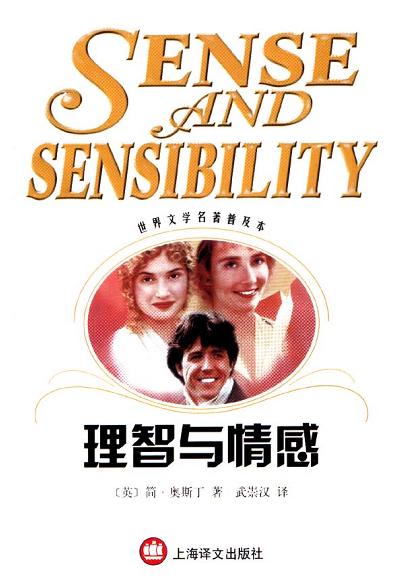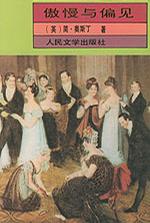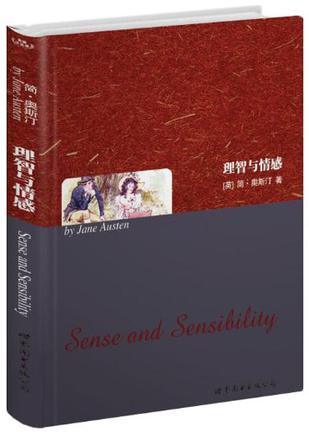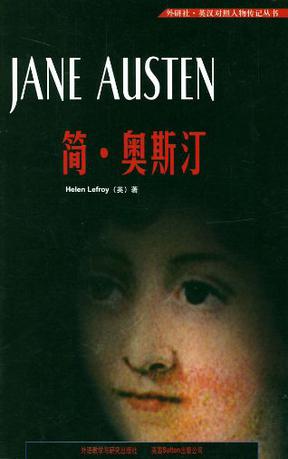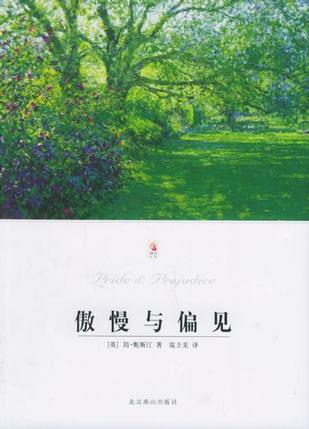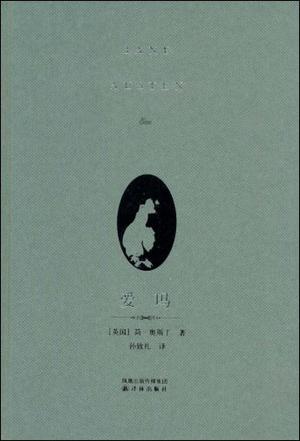欢迎来到相识电子书!
标签:简·奥斯汀
-
诺桑觉寺
凯瑟琳·莫兰是个牧师的女儿,她随乡绅艾伦夫妇来到矿泉疗养地巴思,在舞会上遇见并爱上了青年牧师亨利·蒂尔尼。亨利的父亲蒂尔尼将军误以为莫兰家很富有,于是竭力怂恿儿子去追求凯瑟琳,并邀请凯瑟琳去他们的府邸诺桑觉寺做客,把她视为自家人。后来,蒂尔尼将军又听说莫兰家一贫如洗,气急败坏地把凯瑟琳赶出了家门。但是两位年轻人并没有屈服,他们经过一番周折,终于结为伉俪。 -
理智与情感
《书虫•牛津英汉双语读物:理智与情感(5级)(适合高2、高3年级)》主要内容是:如果你心中怀有强烈的感情,是否该急切而热烈地向全世界表达出来?这样做是否明智?如果你在他人面前总是面容镇定,语调从容,这是否意味着你的心中缺乏激情的火焰呢?达什伍德姐妹被迫和寡母一起搬到德文郡,离开原来的家让她们十分难过,但如今那处房产已归她们富有的异母兄长所有。两姐妹虽然一贫如洗,却不乏爱慕者——腼腆的爱德华·费拉尔斯,浪漫英俊的威洛比先生,以及忧郁而沉默的布兰登上校。 然而真爱的旅途并非一帆风顺。婚姻的希望破灭了,罪恶的秘密凸现出来,心破裂成碎片。两姐妹中哪一位对此有着更强烈的感受呢?是镇定、理性、勇敢地微笑着却一言不发的埃莉诺,还是浪漫、激烈而感情澎湃地哭泣到天明的玛丽安娜? -
理智与情感
《理智与情感》是简·奥斯丁的第一部重要作品,它开创了作者独特的幽默风格——模仿加反讽的讽刺手法,属于简·奥斯丁最富于幽默情趣的作品之一。简·奥斯丁是世界上为数极少的著名女性作家之一,介于新古典主义和浪漫运动的抒情主义之间的“小幅画家”和“家庭小说”家,文学评论家眼里堪与莎士比亚在不朽性方面相提并论的英国作家。 -
爱玛
《爱玛》为英国著名女作家奥斯汀的长篇名著。高家小姐爱玛聪明美丽,自命不凡,喜欢为人撮合婚姻。她屡次干预别人的恋爱,给女友引荐对象,以至自己卷入旋涡,惹出一连串风波。最后,各种错综复杂的关系经过调整和澄清,亲友婚事圆满告成,爱玛也与意中人缔结良缘。小说生动地反映了人情世态,结构精巧,妙趣横生,喜剧气氛笼罩全书,人物形象跃然纸上。在奥斯汀创作的六部长篇小说中,《爱玛》同《傲慢与偏见》齐名,而在艺术上更 -
爱玛
《爱玛》是英国女作家简·奥斯汀较有影响的长篇小说,是她作品中艺术上思想上最成熟的一部。小说主人公爱玛是个美丽聪明的地主小姐,喜欢与人作媒。她在无聊之中把邻近的一个孤女哈丽埃特置于自己的保护之下,主观臆想地安排她的恋爱。哈丽埃特很随和地一次又一次“爱”上了爱玛给她选择的“求婚者”。最后在爱玛的不负责的怂恿下,竟自以为“爱”上了本地最大的地主兼地方官奈特利先生,这时爱玛才猛然发现原来自己是爱奈特利先生的,最后两人都找到了与自己相匹配的伴侣。作者在小说中,已把爱情、婚姻与财产、社会地位联系起来。书中还穿插了美丽优雅的简费尔法克斯和爱玛家庭女教师泰勒小姐的继子,富家子弟弗兰克丘吉尔的婚恋故事。小说现实主义成分增多,戏剧成分减少,结构精微巧妙,喜剧气氛弥漫全书,趣味横生。 本书为英语原著版。 -
Emma
Book Description The Wordsworth Classics covers a huge list of beloved works of literature in English and translations. This growing series is rigorously updated, with scholarly introductions and notes added to new titles. Emma Woodhouse thinks a little too highly of herself, and entertains herself by meddling in the affairs of others. The results are not always as she would like. This novel describes the schemes and eventual humbling of Miss Woodhouse. Amazon.com Of all Jane Austen's heroines, Emma Woodhouse is the most flawed, the most infuriating, and, in the end, the most endearing. Pride and Prejudice's Lizzie Bennet has more wit and sparkle; Catherine Morland in Northanger Abbey more imagination; and Sense and Sensibility's Elinor Dashwood certainly more sense--but Emma is lovable precisely because she is so imperfect. Austen only completed six novels in her lifetime, of which five feature young women whose chances for making a good marriage depend greatly on financial issues, and whose prospects if they fail are rather grim. Emma is the exception: "Emma Woodhouse, handsome, clever, and rich, with a comfortable home and happy disposition seemed to unite some of the best blessings of existence; and had lived nearly twenty-one years in the world with very little to distress or vex her." One may be tempted to wonder what Austen could possibly find to say about so fortunate a character. The answer is, quite a lot. For Emma, raised to think well of herself, has such a high opinion of her own worth that it blinds her to the opinions of others. The story revolves around a comedy of errors: Emma befriends Harriet Smith, a young woman of unknown parentage, and attempts to remake her in her own image. Ignoring the gaping difference in their respective fortunes and stations in life, Emma convinces herself and her friend that Harriet should look as high as Emma herself might for a husband--and she zeroes in on an ambitious vicar as the perfect match. At the same time, she reads too much into a flirtation with Frank Churchill, the newly arrived son of family friends, and thoughtlessly starts a rumor about poor but beautiful Jane Fairfax, the beloved niece of two genteelly impoverished elderly ladies in the village. As Emma's fantastically misguided schemes threaten to surge out of control, the voice of reason is provided by Mr. Knightly, the Woodhouse's longtime friend and neighbor. Though Austen herself described Emma as "a heroine whom no one but myself will much like," she endowed her creation with enough charm to see her through her most egregious behavior, and the saving grace of being able to learn from her mistakes. By the end of the novel Harriet, Frank, and Jane are all properly accounted for, Emma is wiser (though certainly not sadder), and the reader has had the satisfaction of enjoying Jane Austen at the height of her powers. --Alix Wilber Amazon.co.uk "I should like to see Emma in love, and in some doubt of return; it would do her good," remarks one of Jane Austen's characters in Emma. Quick-witted, beautiful, headstrong and rich, Emma Woodhouse is inordinately fond of match-making select inhabitants of the village of Highbury, yet aloof and oblivious as to the question of whom she herself might marry. This paradox multiplies the intrigues and sparkling ironies of Jane Austen's masterpiece, her comedy of a sentimental education through which Emma discovers a capacity for love and marriage. From The New York Times, (2/15/97) "An 'Emma' Both Darker and Funnier" "I am going to take a heroine whom no one but myself will much like," Jane Austen wrote of Emma, vastly underestimating her readers' good taste. The trick of adapting Emma is to recapture Austen's delicate balance, which allows us to see why the heroine still has friends and social influence, despite being the worst matchmaker and busybody in the village of Highbury. In this smart and spirited new version, Kate Beckinsale's Emma walks that fine line beautifully. Her Emma meddles in her friends' lives with near-disastrous results, and of course remains blind to her own romantic feelings for her old friends Mr. Knightly. But her sure-fire social assumptions are innocently wrong-headed, not willfully arrogant. In this and almost every other way, this new television film called Jane Austen's Emma represents the flip side of last year's movie with Gwyneth Paltrow. Though both are faithful to Austen's plot, the earlier film was all about brightness and pretty gardens. It was a slick commercial Emma, whose appeal depended on My. Paltrow's graceful looks; not a bad idea, but not nearly what Austen had in mind. Among the flood of recent Austen Movies, this new Emma has the most in common with Persuasion, sharing a smaller scale, a darker tone, and a focus on psychological nuance. Ms. Beckensale's Emma is plainer looking than Ms. Paltrow's, and altogether more believable and funnier. She came to the role well prepared, after playing another socially self-assured comic figure in the recent film Cold Comfort Farm. The screenplay by Andrew Davies (who also did the wise television adaptations of Pride and Prejudice and (Moll Flanders) does a deft job of letting viewers pick up the social cures that Emma misses. We see, as she should, the glances between the eligible Frank Churchill and the poor Jane Fairfax. We can guess that the clergyman Mr. Elton has designs on Emma and her dowry, not on her penniless friend Harriet. This version also makes it clear why Emma and Knightly are such a good match. Like Ms. Beckinsale's Emma, Mark Strong's Knightly does not have movie-star looks, but these two make excellent verbal sparring partners, vehemently matching wits and social observations. Prunella scales also stands out as Miss Bates, the flibbertigibbet, motor-mouthed neighbor whom Emma callously insults at a picnic. Occasionally, this film plays out Emma's fantasies. There is a brief glimpse of Harriet marrying Mr. Elton, and Frank Churchill's portrait comes alive and speaks to Emma, saying, "Miss Woodhouse, we meet at last." The device is used just enough to add an imaginative touch without becoming a useless gimmick. After so many Austen films, it would be easy to overlook this latest, but its charms are those Austen herself might have valued. It is understated and sly, loaded with a sense that even as society as well-ordered as Emma's leaves plenty of room for comic misjudgments and happy endings. From Library Journal This is another case where a classic is being reprinted simply as a tie-in to a TV/feature film presentation. Libraries, nonetheless, can benefit by picking up a quality hardcover for a nice price. From AudioFile The luxury of the unabridged edition requires a certain commitment. But a luxury it is. Jenny Agutter's reading is perfectly suited to the story, both in tone and pace. She brings out the comic insight that is the hallmark of Austen's stories, making one laugh out loud at times, so well has she caught the moment or the temperament of the characters. The genius of Austen's wit often depends, not on what is said, but on how it is said, and Agutter has given the perfect voice to this lighthearted classic, delicately differentiating each character's personality. A glorious way to experience the essential Austen. K.R. From 500 Great Books by Women; review by Chris Kellett First published in 1816, Emma is generally regarded as Jane Austen's most technically brilliant book. But that's not the reason to read it. Read it to see how a scheming heiress who is determined not to marry ends up embracing love and growing in maturity without dying or becoming impossibly insipid, the fate of so many nineteenth-century heroines. As her fourth novel was taking shape, Jane Austen noted "I am going to take a heroine whom no one but myself will much like." She was wrong. It is easy to love Emma Woodhouse. She is a snob, a meddler, and a spoiled child - she is also smart, funny, generous, and compassionate. Determined to control the arrangements of other people's lives, Emma takes on the self-appointed role of matchmaker in a world that grants little public power to women. Small wonder that Emma, who has a "mind lively and at ease," wastes her considerable creative powers dreaming up romantic scenarios that consistently and comically fail all reality checks. As in all of Jane Austen's works, the simple theme of courtship belies the complexity of her vision of human nature and of our need for power. Technical brilliance? Yes. Moral brilliance? Most definitely. Book Dimension : length: (cm)19.8 width:(cm)12.6 点击链接进入中文版: 爱玛 -
傲慢与偏见
《世界文学名著典藏•傲慢与偏见(全译本)》围绕着班纳特太太如何把女儿嫁出去的主题展开故事。其中又以二女儿的婚事为主线。男主人公达西富有、高贵但却十分高高傲;二女儿伊丽莎白年轻、任性且聪明活泼,对达西心存偏见。爱情在两人之间忽隐忽现、步履维艰,但终于打破了这种傲慢与偏见。小说最终在两人幸福美满的婚姻中落下帷幕。 小说不仅在文字和语言风格上令读者沉迷与陶醉,更以其严谨的结构、饱满的人物形象,深刻的心理描写,以及引人入胜的爱情故事,吸引读者步步深入,逐渐进入小说的美妙世界。 -
理智与情感
《理智与情感》是英国著名女作家简·奥斯丁的处女作。埃莉诺和玛丽安两姐妹生在一个体面的美国乡绅家庭,姐姐善于用理智来控制情感,妹妹却往往情感毫无节制,因此在恋爱中碰到挫折时,她们作出了不同的反映……《理智与情感(世界文学名著普及本)》和作者的代表作《傲慢与编见》堪称姐妹篇,同样以细腻的笔触和生动的对白叙述没有富裕嫁妆的少女恋爱结婚的故事。 -
傲慢与偏见
《世界文学名著宝库:傲慢与偏见(青少版)》主角是一中产阶级家庭的五个女儿,势利眼的母亲一见到富家公子宾利和达西前来小镇,便迫不及待安排女儿钓金龟。大女儿跟宾利的爱情开始发展得很顺利,但在关键时刻却产生了波折。二女儿伊丽莎白则对态度高傲的达西存有严重的偏见,两人明明相爱却不断在言语中剌痛对方。幸好最后误会冰释,五个女儿都有了好结果。小说语言清新、秀丽、细腻,展示了女作家丰富的感情,同时也表达了她婚姻应以爱情而不是以财产与地位为基础的观点。 -
理智与情感
理智与情感,ISBN:9787506248372,作者:(英)简·奥斯汀 -
理智与情感
《奥斯丁文集:理智与情感(经典插图本)》是作者处女作,和《傲慢与偏见》堪称姐妹篇。埃莉诺和玛丽安两姐妹生在一个体面的英国乡绅家庭,姐姐善于用理智来控制情感,妹妹却往往在情感上毫无节制,因此在恋爱中碰到挫折时,她们作出了不同的反应:姐姐忍辱负重,始终与人为善;妹妹心高气傲,几近崩溃……与主人公命运情牵相关的闲得发慌的乡绅太太,势利无情的兄嫂一家,市侩虚伪的远房姐妹,以及少女心中那三位或道德败坏或正直优柔的恋人悉数登场,全书以喜剧开头,悲剧发展,终以喜剧收场,一则以细腻笔触和生动对白见长,讲述没有富裕嫁妆的少女婚恋的经典故事。 40幅原版插图生动再现经典场景。 -
诺桑格寺
《诺桑格寺》内容简介:“年轻小姐走人世界”,在乡下成长的女孩被带到了巴斯的社交场所,天真烂漫的凯瑟琳·莫兰碰上了各种各样的新奇事。要保留名声还要吸引心仪的男子成为自己的丈夫,这对于莫兰来说,绝不是一件简单容易的事情。 美貌的莫兰从无知迷惑到理解、清楚,从未失去成熟和率真。从一开始年轻、富有、幽默,而且有正义感的亨利·提尔尼就俘获了凯瑟琳的芳心。最后经过怎样的波折,有情人终成眷属…… 阅读手中的这部小说,答案就在您的心中。 -
傲慢与偏见
《傲慢与偏见》是世界上流传最广、最久的名著之一,毛姆推荐的“世界十大小说名著”之一,奥斯丁最为人喜爱、流传最广的作品。 简·奥斯丁是世界上为数极少的著名女性作家之一,介于新古典主义和浪漫运动的抒情主义之间的“小幅画家”和“家庭小说”家,文学评论家眼里堪与莎土比亚在不朽性方面相提并论的英国作家。 -
诺桑觉寺 劝导
《诺桑觉寺:劝导》收录了简·奥斯丁的《诺桑觉寺》和《劝导》。 《诺桑觉寺》和《劝导》是在简·奥斯丁去世后,于1818年结集出版的。这两部小说除了写的都是爱情故事外,还有一个共同点,即都带有强烈的讽刺意味:《诺桑觉寺》讽刺的是风靡一时的哥特小说,《劝导》则讽刺了腐朽没落的贵族阶级。 -
爱玛
《爱玛》是奥斯丁作品中艺术上、思想上最成熟的一部,也是一部匠心独具的天才喜剧之作。小说主人公爱玛是个聪明、漂亮、任性的地主小姐,她喜欢为别人做媒,并把邻近的一个孤女哈里特置于自己的保护之下,主观地安排她的恋爱。哈里特一次又一次地"爱"上爱玛给她选择的"求婚者",却均以失败而告结束。终于在经历过一番戏剧性的小波折后她们都找到了与自己情投意合的人生伴侣。 批评家托•巴•麦考莱曾评价道:"作家当中其手法最接近于莎士比亚这位大师的,无疑就要数简•奥斯丁了,这位女性堪称是英国之骄傲。她为我们创造出了一大批的人物。" 点击链接进入英文版: Emma
热门标签
下载排行榜
- 1 梦的解析:最佳译本
- 2 李鸿章全传
- 3 淡定的智慧
- 4 心理操控术
- 5 哈佛口才课
- 6 俗世奇人
- 7 日瓦戈医生
- 8 笑死你的逻辑学
- 9 历史老师没教过的历史
- 10 1分钟和陌生人成为朋友


